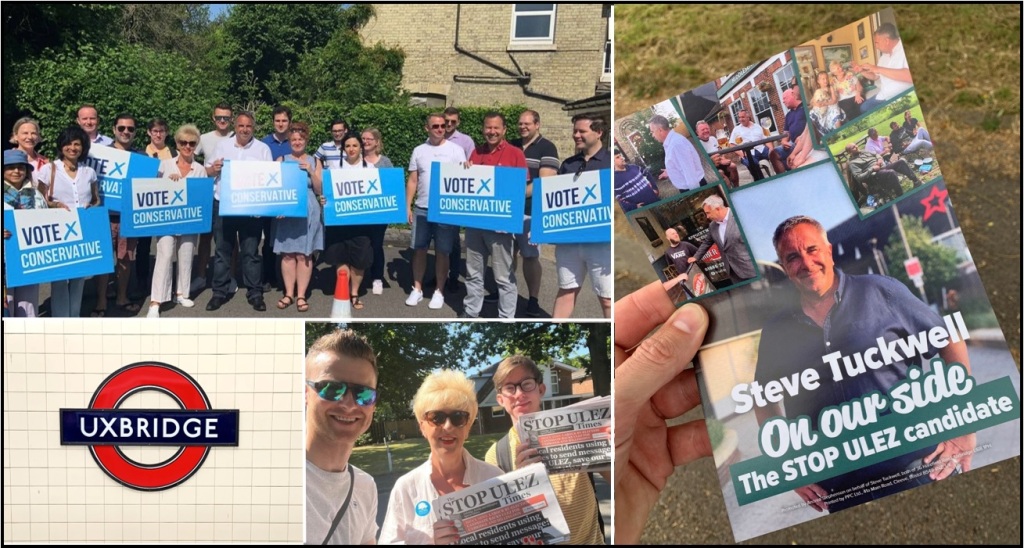Ten minutes in to his party conference speech, Boris Johnson produced a red brick from the shelf of his lectern. His message both verbal and visual was clear. London suffers from a housing shortage; we need to build more homes. In his own words, “One way or another we will need 1bn bricks. So, brick, my little friend, you will not be alone in London.”
 With the population of the capital set to exceed 9 million, the demand for housing is growing daily. The important question facing the city’s planners and developers is not if new housing is needed but what type of housing is best for London. This matters because a city’s architecture has a profound effect on its residents. Put simply, where you live can determine how you live.
With the population of the capital set to exceed 9 million, the demand for housing is growing daily. The important question facing the city’s planners and developers is not if new housing is needed but what type of housing is best for London. This matters because a city’s architecture has a profound effect on its residents. Put simply, where you live can determine how you live.
Surveys of people in the UK have consistently found that the large majority of people prefer to live in streets rather than in high rise blocks. Those who live in streets are statistically happier and less stressed compared to people who live in multi-story buildings. Moreover, in conventional streets crime is lower and people report to being more socially engaged compared to people in high rise buildings.
Back to Boris. Earlier this year the Mayor of London took responsibility for the fate of one of London’s most historic sites, Mount Pleasant, which is currently home to the Royal Mail sorting offices. A large part of this site is set for redevelopment and competing plans exist for how to do it.
Royal Mail has invested more than £10 million in its plans to turn the site into a series of large, high-rise concrete flats up to 15 stories high. The plan has been derided by many including Simon Jenkins who wrote recently that “No respect is shown for contour or urban context.” Jenkins goes on to explain, “The Royal Mail proposal has been overwhelmingly opposed by every local body, not least the local Mount Pleasant Association. It is a mockery of localism and drains whatever character might have been instilled in this potentially charming corner of London”.
An alternative plan has been put together by Create Streets and the Legatum Institute. This plan is far and away a better option than the Royal Mail plan. A quick look at the details of the alternative plan reveal why:
- It includes 730 homes, which provides a higher density than the Royal Mail’s 681.
- It’s popular. A recent survey of 258 local residents found that 99% of respondents favoured the Create Streets plan over the Royal Mail plan.
- It’s better value. The estimated re-sale potential over 40 years is estimated at £280m more than the RM plan (which would mean an
 £84m loss for the British taxpayer given that we own 33% of Royal Mail).
£84m loss for the British taxpayer given that we own 33% of Royal Mail).
- It gives greater priority to green spaces, especially in relation to the impact on a nearby primary school.
- It provides better connectivity for residents, with pedestrian routes that are 75% more accessible than the RM scheme.
- Finally, it’s much, much prettier than the RM plan.
Enter Winston Churchill. In 1943 parliament was debating the plans to reconstruct the House of Commons chamber after it was destroyed by a German bomb two years previously. During his speech, rather than using the event to make a case for modifying the chamber, Winston Churchill argued for it to be rebuilt exactly as it was. Churchill argued for this because he believed the Commons Chamber represented more than bricks and mortar. The intimate design of the Commons chamber, Churchill argued, plays a vital role in preserving and upholding the style, culture, and process of Parliamentary democracy that had existed for centuries.
Churchill recognised that our architecture influences our culture. He knew that preserving the principles of Parliamentary democracy would have a substantial effect on wider society. This is what he meant when, during the debate, he said, “We shape our buildings and afterwards our buildings shape us.”
Back to Boris. Picture the scene, the Mayor of London has both sets of plans for the Mount Pleasant site spread out on his desk. The first is the Royal Mail plan for an ugly, high-rise, concrete jungle, unpopular with local residents; the second is the Create Streets plan for an attractive, popular, design that provides more homes and better value than the first. This sounds like a no-brainer. And yet, bizarrely, Mr Johnson recently approved the Royal Mail plan.
This may not be the end of it. There’s still a chance for a government minister to overturn the decision or indeed for Johnson to change his mind. The excellent Mount Pleasant Association certainly hasn’t given up hope.
Boris Johnson is soon to release a book about Winston Churchill. He will undoubtedly be familiar with Churchill’s advice to parliament in 1943. Seventy years later, Johnson would do well to heed that advice.



